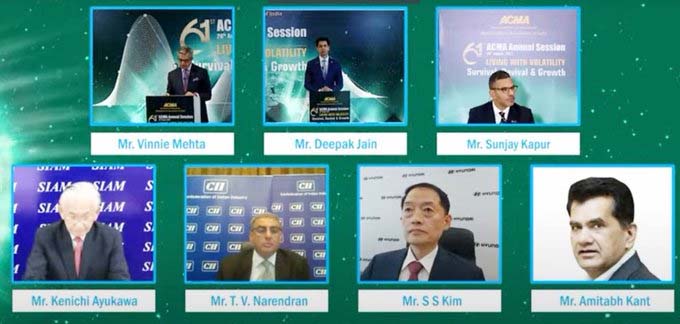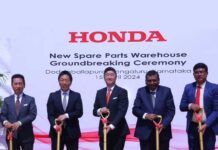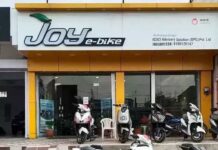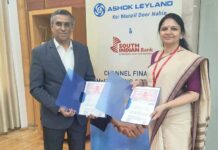
The Automotive Component Manufacturers Association of India (ACMA) on August 26 hosted its 61st Annual Session on the theme ‘Living with Volatility – Survival, Revival & Growth’.
The session was centred on the automotive industry’s resolve to survive, recover, and explore new growth opportunities amid the most challenging humanitarian and business crisis due to the pandemic.
It brought spotlight on the way the automotive value chain has collaborated to display remarkable resilience and ensure business continuity.
Organised on a virtual platform, the session witnessed participation of over 4,000 delegates from the Government, ministries, OEMs, industry bodies and think-tanks.
It was graced by Dr. Mahendra Nath Pandey, Union Minister for Heavy Industries, and Mr. Amitabh Kant, CEO, NITI Aayog, and other eminent dignitaries who shared their views on harnessing newer opportunities for the auto component sector to evolve in prevailing times.
In addition to the insightful sessions, ACMA in partnership with PwC, released a study on “Best practices in Living with Volatility: Survival, Revival and Growth” to understand how the automotive industry is learning to thrive under ever-changing business environment. The study stressed on the need to become more agile, flexible and customer-focused to succeed in the new normal.
According to the study, the key element for the survival of the auto component industry is to become financially prudent and efficiently manage the risks. The revival, it said, needs investment towards digital transformation, leadership development, enhanced capabilities, agility in supply chain and stabilising manufacturing as per demand.
The growth in the industry is expected to come on the back the CASE disruption, new markets for exports and aftermarkets, focus on innovation and evaluating trade-offs to arrive at future product categories. Over the next decade, the industry is likely to maintain a healthy growth trajectory but may face high- volatility.
Addressing the session, Dr. Pandey said, “The last two years have been difficult for the industry due to the global pandemic and therefore we must take stock of the challenges and prepare for the future. A more concerted effort towards skilling and localisation can help the industry to navigate through the tough times and address many problems.” The industry, he added, needs to transition to next generation of mobility to stay relevant and focus on localisation and technology development.
Mr. Kant said “We are coming out of the crisis of COVID-19 but will soon be confronted by the crisis of climate change. These challenges can be tackled by going digital, lean, and green. The transition of automobiles towards electric mobility is inevitable and the auto industry should strive to make India a global leader in electric mobility.”
The right approach, according to him, would be to de-risk supply chains by boosting localisation and reducing import dependency. “For India to be a manufacturing nation, the auto and the auto component sector will have to play a defining role,” said Mr Kant. Government initiatives of the Production Linked Incentive scheme and the Scrappage policy will help in this endeavor, he said. “Technology disruptions are creating opportunities that must be harnessed by the industry,” concluded Mr Kant.
Commenting on the 61st Annual Session, Mr. Deepak Jain, President, ACMA, said, “The last two years have been extremely challenging for the industry with two lockdowns in the wake of the pandemic that threatened to derail our economy and industry. The year 2020-21 witnessed the second successive year of contraction in vehicle sales in India and overall vehicle sales fell by over 13.6 pc. The component industry also witnessed de-growth of 3 pc. With the second wave of pandemic, the revival of our industry has again been put to test.”
However, he said, despite several challenges the industry has displayed remarkable resilience with collaborative spirit. “We are now witnessing a gradual resurgence of demand for vehicles, and I am hopeful that we will be able to ensure business continuity and return to pre-COVID levels of performance, sooner rather than later,” said Mr Jain.
The Special Plenary Session was addressed by Mr Ashwani Gupta, COO, Nissan Motor Corporation and Mr RC Bhargava, Chairman, Maruti Suzuki India. The theme session on Living with Volatility – Survival, Revival & Growth witnessed presentation by Mr. Kavan Mukhtyar, Partner and Leader – Automotive, PwC and a keynote by Dr. Pawan Goenka Chairman, SCALE Committee and Former MD & CEO Mahindra and Mahindra.
The Annual Session also had a panel discussion with eminent industry leaders Mr Vipin Sondhi, Vice-President, SIAM and MD & CEO, Ashok Leyland, Mr Hemant Sikka, President, Farm & Equipment Sector, Mahindra & Mahindra, Mr Sunil Kakkar Chairperson, SIAM, along with many other dignitaries.
The session culminated with an address by Mr. Arun Goel, Secretary in the Ministry of Heavy Industries.









